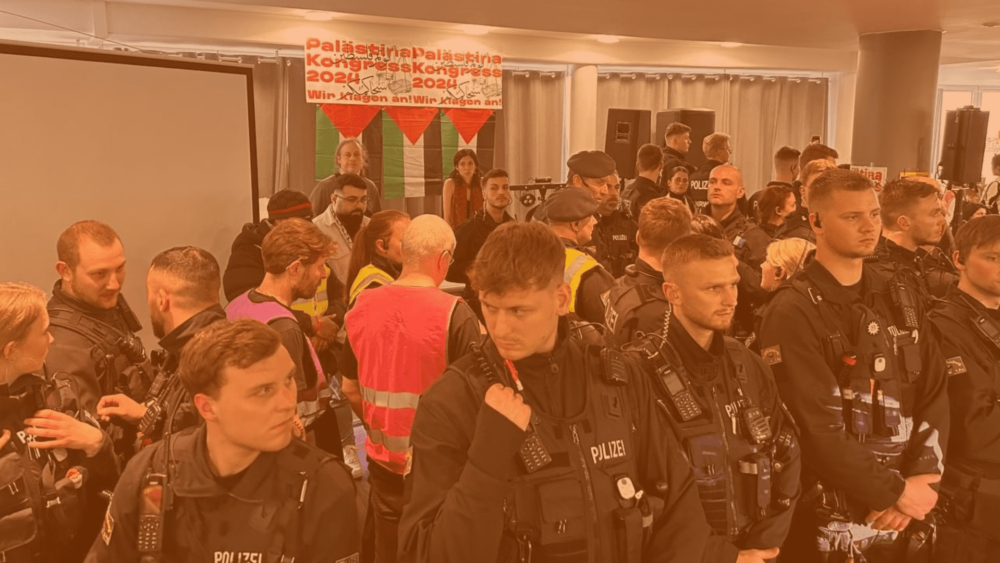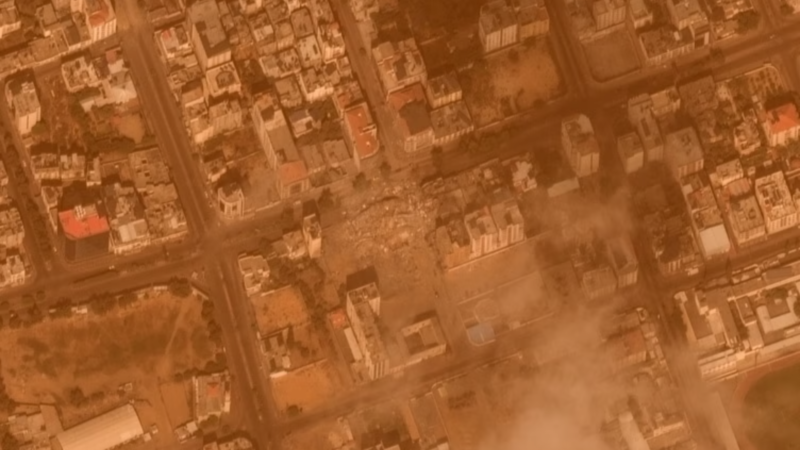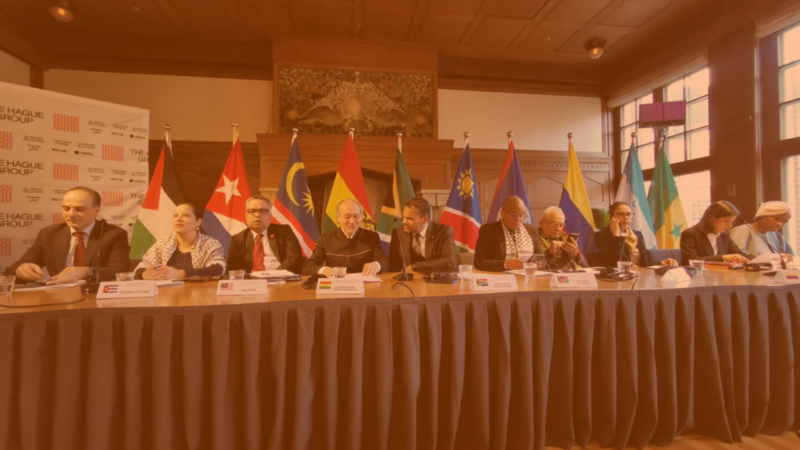The next chapter of German hypocrisy, from a personal perspective
I grew up between two worlds – the child of a Greek mother and a German father. Their cultural contrasts played out in ways both amusing and heated, from politics to everyday habits, becoming family folklore.
My mother still laughs about her first meal at my German grandparents’ house. A cold, gray spring day, a steaming Kohlsuppe on a lace-covered table in a stiff 1950s-style living room. Silence fell as everyone spooned their soup with military discipline, steam rising like factory chimneys. “So German,” she’d say, shaking her head. She adapted – softly blowing on her spoon, whispering a polite word or two.
Some time later, my father found himself in the reverse scenario. A Greek summer, cicadas screaming, the veranda of my mother’s home overlooking the sea of Patras. A long wooden table, heavy with Spanakopita, potatoes, stuffed vegetables and roasted lamb. Starving, he sat, waiting. But nobody ate. Laughter filled the air, glasses of Tsipouro clinked, hands waved in animated conversation. “Why is nobody eating?” he whispered. “They’re waiting for it to cool. And there’s just too much to talk about,” my mother grinned.
Years later, their cultural clashes played out in ideological debates. My father railed against Greek nationalism – the flags, the parades, the indoctrination of schoolchildren, the Macedonia dispute, or the Cyprus conflict. “Symptoms of nationalism gone mad,” he would say. When My Big Fat Greek Wedding came out, he saw it as a documentary rather than a comedy. “It proves my point!” he declared, and only with a faint trace of irony.
As a teenager, I found myself agreeing with him. Wasn’t Germany, with its serious self-criticism, its flag-avoidance (at least until the world cup 2006), the healthier model? Sure, my mother rolled her eyes at German obsession with discipline, punctuality, and its rigid compliance with rules. But against his idealistic pacifism, she had little ammunition. Besides, anything resembling German pride, or so-called primary virtues like punctuality, order, and obedience – the very ones he himself had been drilled with – was anathema to him, too.
My father was a young ’68er, a founding member of the Greens (when they were still pacifist), alternative, and internationalist (yet, probably as self-absorbed as they are today). He wore wool sweaters, puffed on a pipe, and loved citing Gramsci and Marx. He protested Rudi Dutschke’s assassination, and the NATO Double-Track Decision. Back then in the 1970s and 1980s, a huge number of people took to the streets of West Germany against their own government’s subservience to US foreign interests, against becoming a pawn in the game of great powers, and a potential nuclear battlefield. History repeating?
My father died 15 years ago. Even then, he shook his head at the SPD’s rightward shift, the Greens’ bourgeois turn, their Kosovo debacle. But these last years, he must be spinning in his grave: the militarism, the billions poured into rearmament (now even without the debt brake! Fancy that!), the embarrassing Zeitenwende rhetoric, the cold dismantling of the welfare state, the self-righteous Fortress Europe, raising its walls ever higher as racism and exclusion spread like wildfire.
But what would he have to say about the genocide of Gaza? My father was a professor of Hispanic culture, with a specialisation in Sephardic Jewish history. I remember a photo of him at a symposium in Jerusalem in 2005, wearing a kippah, his face solemn, heavy with historical guilt. He returned speaking of Israeli fear, how terror shaped their daily lives. That’s it.
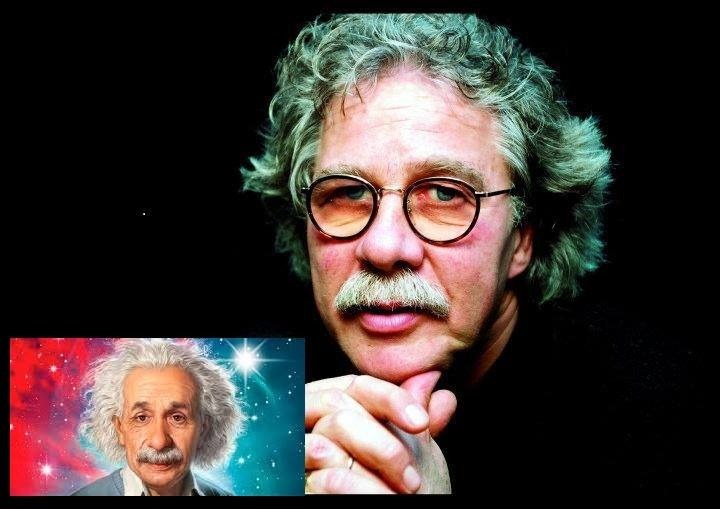
Carolina’s father, who happens to bear a striking resemblance to Albert Einstein
Back then, I had no knowledge of what I can confidently call today Israel´s dehumanising settler-colonial apartheid-system. I had absorbed the German narrative: Jews as eternal, idealised victims, Palestinians as faceless, racialised perpetrators. The word Nakba didn’t reach me until many years later. Understanding it took even longer.
So, yes. After October 7, I caught myself wondering time and again: what would he say today? As a die-hard leftist, would we be locked in fierce debates about Israel’s “right to self-defense”? Would he repeat the standard German line about “historical responsibility”? Painfully, I realise, growing up means letting go of idealised parents: he would most probably have fallen for Germany’s rigid, selective, ignorant discourse that is blindly repeating Israeli propaganda. He was too weighed down by inherited guilt to see the bigger picture. After all, for his generation, rejecting their parents’ silence about the Third Reich was a defining act of identity.
It is the cruel irony of fate that those who once stood up against dehumanisation, ultimate racism, and the industrial extermination of a dehumanised people are now the ones defending a genocidal state with a moralising finger.
Behind Germany’s morality narrative
Germany prides itself on its memory culture, its Stolpersteine (“stumbling stones”, commemorating victims of the Nazi regime at their last chosen place of residence), the Topography of Terror, the Holocaust Memorial in Berlin, its many rituals of national self-criticism. Unlike nationalist countries that only remember their victories and glorified victimhood, Germany appears to have done its homework right. And yet, perversely, this same historical reflection now unites the entire German political spectrum – from the CDU to the AfD, from the SPD to the Greens – in unconditional support for Israel’s genocide in Gaza. Only a handful of (less prominent) party members dared to speak up for Palestine – like Palestinian-German activist Ramsis Kilani from Die Linke, who was recently expelled from the party based on an all-too-familiar accusation of anti-Semitic activism.
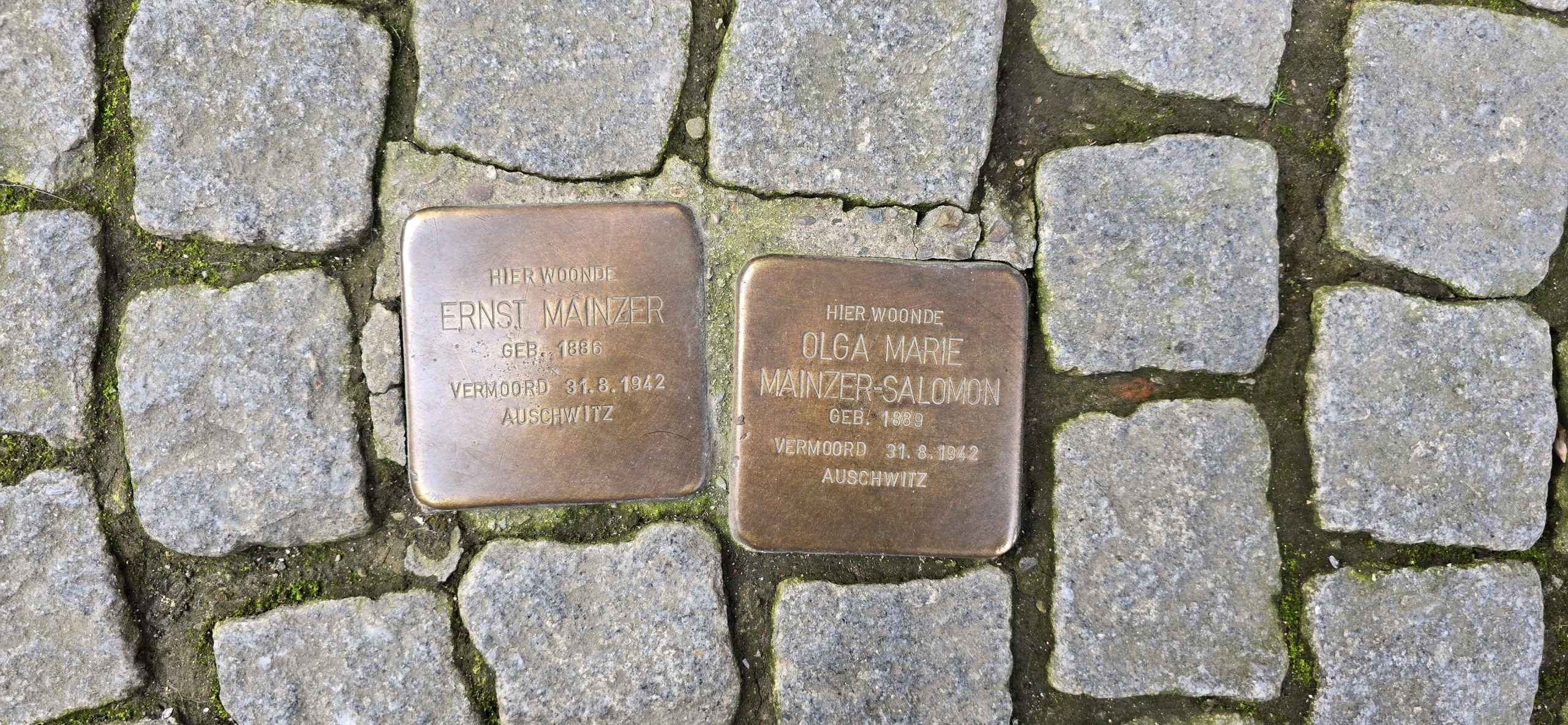
Stolperstein stones
All the others, the moral crusaders, speak of Israel’s right to self-defence in a conflict that – so the story goes – began like a bolt from the blue on a late summer day in October 2023, when frenzied, anti-Semitic religious fanatics shattered the peaceful, civilised everyday life of law-abiding citizens. They call Israel the only democracy in the Middle East, surrounded by autocratic backwaters – though of course no one says backwaters out loud. But the message is clear: some are civilised, like us. The others are, well… the others.
And because they are so “civilised”, they can dismiss the charges brought by the International Court of Justice and the International Criminal Court with a calm shake of the head. After all, a state governed by the rule of law doesn’t need to be lectured or corrected by an international tribunal – even if it happens to be the most important one in the world. A “plausible genocide”? Please. That, roughly, is the argument one keeps hearing in Germany: if it really were genocide, then surely the Israeli courts would rule accordingly. Surely, they would even hand over their political leadership to the ICC.
Right. The very same courts that let settler murders of Palestinians go unpunished. That do nothing about the systematic expulsion of Palestinians from the occupied territories. That advance illegal wars, occupation, disenfranchisement and dispossession in lockstep with politics – legitimised by laughably flimsy laws and obviously false reasoning.
Even as the evidence of Israel’s crimes grows heavier by the day, the majority of Germany’s political class stubbornly clings to its narrative.
One of the more embarrassing moments – reported internationally – occurred at the 2024 Berlinale, when the documentary No Other Land was awarded Best Documentary. The film was co-directed by, i.a., Palestinian Basel Adra, and Israeli Yuval Abraham. During the award ceremony, Adra and Abraham delivered a powerful joint speech condemning the ongoing occupation, calling for an end to the displacement of Palestinians, and urging Germany to stop supplying weapons to Israel. The audience responded with loud and emotional applause – including most prominently Claudia Roth, Germany’s Minister of State for Culture (and a prominent figure of the Green Party). However, after facing backlash from pro-Israel critics, Roth clarified that her applause was intended only for Yuval, not for Basel. No further comment.
This entire political climate is reinforced – and indeed institutionalised – through a series of increasingly farcical German resolutions on “combating anti-Semitism,” each more chilling in its implications than the last.
It began in 2019 with the Bundestag’s resolution condemning the BDS (Boycott, Divestment and Sanctions) movement as anti-Semitic. While non-binding, the resolution set a dangerous precedent by equating a non-violent civil society campaign – modelled explicitly on the Anti-Apartheid boycott of South Africa – with anti-Semitism. The BDS campaign, which calls for pressure on Israel to respect international law and Palestinian rights, was reduced in the German imagination to a modern echo of the Nazi-slogan “Don’t buy from Jews”. This grotesque comparison has proven politically effective, despite the fact that BDS targets a state and its policies, not a people or a religion.
At the core of Germany’s current crackdown on dissent lies the Bundestag’s resolution “Nie wieder ist jetzt” (“Never Again Is Now”), passed in the wake of October 7, 2023. It is officially non-binding, yet highly consequential. At its core, it recommends that funding be withheld from organisations, associations, or institutions that express anti-Semitic views. As part of this resolution, the Bundestag formally adopted the working definition of anti-Semitism proposed by the International Holocaust Remembrance Alliance (IHRA), which defines anti-Semitism as:
“A certain perception of Jews, which may be expressed as hatred toward Jews. Rhetorical and physical manifestations of anti-Semitism are directed toward Jewish or non-Jewish individuals and/or their property, toward Jewish community institutions and religious facilities.”
Needless to say that this working definition is so vague and non-graspable that it can easily be (and factually is being!) applied to any criticism of Israel. So, it has become a powerful tool of intimidation, blurring the line between anti-Semitism and anti-Zionism, turning political critique into moral suspicion.
In practice, this means that any NGO, cultural institution, or educational body that dares to engage in public critique of Israel now risks losing state funding or being publicly denounced. And this is not theoretical: we have already seen how this logic plays out.
A striking example is the case of Oyoun, a Berlin-based cultural centre with a postcolonial and intersectional focus (and MERA25´s home for a couple of months). In early 2024, Oyoun was effectively shut down after cooperating with the Jewish Voice for a just Peace in the Middle East – a Jewish organisation that openly criticises the Israeli occupation. For this act alone, their funding was revoked. The fact that a Jewish, anti-racist, peace-focused initiative can be labelled anti-Semitic in Germany today says everything about how dangerously elastic the term has become in official discourse.
By 2024, the institutional repression had reached universities and schools. As pro-Palestinian students and scholars spoke out against Israel’s war on Gaza, crackdowns followed. Events were cancelled, and in some cases, police were called onto campuses. Academic institutions—already dependent on third-party and state funding under the logic of neoliberal austerity—quickly fell in line. The principle of academic freedom, once sacred, is now selectively applied.
In January 2025, yet another Bundestag resolution targeted this very sector—explicitly addressing schools and universities. It called for sanctions against perceived “anti-Semitic” behaviour, even suggesting temporary suspension or expulsion of students.
The result is a memory culture that serves as a comforting fiction, redirecting historical guilt onto the Palestinians. And the left, liberals, even self-proclaimed anti-racists remain silent. Apparently, racism is only visible when it fits the narrative.
I picture my father shaking his head—but this time, even he has no words. Father, forgive them not; for they know what they do. Racism is the elephant in the room. You must remember what Noah Sow wrote in Deutschland Schwarz-Weiß: racism isn’t just skinheads and swastikas—it’s structural. It hides in neutrality, in double standards, in good intentions. It’s there when a colonial regime is protected while a Berlin cultural centre like Oyoun is defunded—for hosting a Jewish anti-occupation group.
But Germany’s policy on Israel has even another dimension. It reflects the long shadow of US foreign policy in the Middle East – disastrous, interventionist, and unbroken for decades. Miriam Chorley-Schulz, professor of Holocaust studies in the United States, describes how 9/11 and the so-called War on Terror became a convenient screen for projecting anti-Semitism outward while serving a geopolitical function. The US, evidently, has long used Israel as a strategic foothold in the Middle East. Germany, she argues, ever eager to prove itself as the perfect pupil of history, follows Washington’s lead with docility.
Notably, the offices of Germany’s Anti-Semitism Commissioners (there is one on the federal and almost in every federal state) came into existence only in 2018. They were established in the wake of protests at the Brandenburg Gate sparked by Donald Trump’s unilateral decision to move the US embassy from Tel Aviv to Jerusalem. Protesters then burned an Israeli flag.
Since that time, these commissioners have directed their statements less at actual anti-Semitism and much more at Muslims and the pro-Palestinian movement in Germany. Again and again, their interventions have aligned seamlessly with state doctrine.
One of the more grotesque moments in this ongoing saga arrived when Felix Klein, Germany’s Chief Anti-Semitism Commissioner, endorsed Trump’s latest plan for Gaza, declaring: “I don’t think it’s wrong to think radically and in a completely new way.”
Trump’s proposal, a dystopian fever dream, suggests that Gaza be “evacuated” and its Palestinian population “relocated” to Arab states while Israel embarks on a grand reconstruction project. Klein, in his eagerness to frame this as a pragmatic solution, likened it to vacating a house before renovations. That this metaphor was grotesquely inadequate did not seem to trouble him. The German government, when pressed on the matter at the Bundespressekonferenz – a weekly press briefing where journalists question government spokespeople—merely shrugged. Klein, they explained, had spoken as a private citizen. As if that excused the horror of the proposal. As if genocide were an opinion.
Germany’s discourse on Israel, I conclude from all of this, slides seamlessly into the broader matrix of colonial mentality, imperial arrogance, racism, and Western self-righteousness – led, as always, by the United States, Germany’s big brother, whom both conservative and supposedly progressive parties have been following for decades with increasing blindness. And so, Germany remains quiet, unsettled, and uncertain in the face of the erratic figure of Trump. But even the madman in the White House will not be enough to trigger Europe’s political emancipation.
A first-hand encounter with censorship and political pressure in Berlin
Against the backdrop of this powerful alliance of identity politics, and geopolitical interests, it becomes clear that pro-Palestinian voices in Germany are fighting a David vs. Goliath battle. The case of Melanie Schweizer, MERA25’s direct candidate for the Bundestag in Berlin 2025 – and my personal friend – speaks volumes. Melanie has learned first-hand what happens when someone in Germany dares to voice opposition to state policy. A couple of weeks ago, she was dismissed from her position as a lawyer for international law at the Federal Ministry of Labour and Social Affairs after publicly criticising Germany’s arms deliveries to Israel. Her supposed crime: calling Israel a settler-colonial state and an apartheid system. It is worth noting that she did not issue an official communiqué in her capacity as a government employee. She simply wrote on X and Instagram. Of course, in this case, no one mentioned that she was speaking in a private capacity.
In February 2025, she, myself, the Jewish Voice for a Just Peace in the Middle East, the Gaza Comittee and Eye for Palestine invited Francesca Albanese to Berlin for a panel discussion. The programme included a musical performance by Michael Barenboim, son of Daniel Barenboim, alongside a Palestinian quintet, a documentary screening by Palestinian-American journalist Hebh Jamal on the suppression of pro-Palestinian voices in Germany titled “The Reason of State”, and various speeches and discussions featuring Francesca, Israeli-British Prof. Eyal Weizman, founder of the famous Forencis Architecture network, and Quassem Massri, a Palestinian doctor that volunteered in Gaza last year as one of the last medical stuff that Israel allowed to enter.

The event was set to take place at Kühlhaus Berlin, a private cultural space. Given that Albanese had already been cancelled at LMU Munich and FU Berlin (ironically, an institution that prides itself on “freedom” in its name), we assumed a privately owned venue would be less susceptible to external pressure. How naive we were.
Multiple times, the police contacted me and our lawyer with inquiries about the event. Given the experience of the Palestine Congress a year before, we knew all too well that political circles in Berlin would be scrambling – looking for a way to shut our event down. The police, fondly referred to in German as “your friend and helper,” were merely the executing arm – a tangible manifestation of a power that, true to form, remained invisible to the very end. Or as Michel Foucault might have put it: the face of an authority that prefers not to show its face.
First, the police imposed a condition: Hebh Jamal’s documentary contained a brief, 30-second interview with a member of Samidoun, an organisation designated as a terrorist group in Germany. This section, they decreed, could not be shown. Rightfully, the filmmaker criticised this decision, arguing that she had interviewed a variety of voices, not as a political propagandist, but as a journalist. In vain. We were informed that showing this scene would amount to a “glorification of terrorism” (and would be used as a reason to terminate the event with immediate effect. Faced with no viable alternative, we decided to forgo the film screening and instead have her speak.
On the day of the event, as I was on my way to the venue, the manager of Kühlhaus Berlin called: I was informed that they decided not to host us due to “political pressure from the highest level”. Who that was? They refused to elaborate. In a brief and awkward conversation, the message became clear: if they let the event go ahead, they might have to shut the whole place down. I was informed there had been multiple phone calls over the past few days – each one applying immense pressure. When I asked for details, she replied that if they went into specifics, that too could have serious consequences. From this, we could only conclude that the political pressure extended all the way to the investors behind Kühlhaus.
As I was already close to the venue, and other members of the organising group were about to arrive, we decided to meet in person anyway. When I arrived, I stood frozen in disbelief: At the entrance of the five-story brick building, a freshly sprayed graffiti read: “UNRWA supports Terror” and “Albanese, you are an Anti-Semite”. The first piece of graffiti was clearly a reference to the fact that we intended to donate the proceeds of the benefit event to UNRWA. The second – and I really can’t suppress the bitter irony – was quite possibly the most venomous welcome ever extended to a highly respected and internationally acclaimed UN representative in Germany.
What a chilling reminder of the darkest chapters of German history, I thought. A short time later, when we met with the heads of Kühlhaus with a larger group for one final attempt at dialogue, they had nothing more to say – just a few rhetorical phrases and expressions of regret, as if they’d already said too much.
What I’m writing here is already risky for Kühlhaus. But I’m making it public nevertheless – because what’s at stake is far greater than the future of one cultural venue. What’s at stake is freedom of speech, freedom of academic inquiry, and the right to assembly.
In a moment that restored some faith in human solidarity, the courageous journalists of Junge Welt stepped in within minutes, offering us a small space in their building. Hundreds of people who had purchased benefit tickets were asked to stay home, as the new venue could only accommodate 200 guests. Shortly after we arrived, police began gathering outside—along with a growing crowd at the entrance and press ranging from ARD and Al Jazeera to Thilo Jung.
Just before the event began, we counted dozens of police vans lined up tightly along the street in front of us—as if we were hosting Woodstock or something of that scale. Against our and the host´s will they stationed themselves in the event hall (a press building!) by official order for the entire eight-hour program, with an interpreter present, claiming they were anticipating potential criminal offenses. The Junge Welt editor-in-chief protested fiercely. We pointed out that a livestream was available: if the police deemed anything illegal, they could intervene immediately. Their response: “It’s not just about the speakers. It’s also about the audience.” In other words, even whispering something to the person next to you could have legal consequences. What a travesty of the rule of law.
Despite everything, the night became one of defiance and solidarity. Our brilliant Francesca Albanese took the stage to standing ovations, beginning with the ironic remark that 72 hours in Germany had made her rather nervous, and she was looking forward to returning to the “peaceful and free” Tunisia. Her speech focused on human rights, the systematic oppression and disenfranchisement of Palestinians, and the absurd complicity of Western governments – particularly Germany – in silencing criticism.
Eyal Weizman presented forensic evidence of the genocide unfolding in Gaza. His report, Humanitarian Violence, meticulously reconstructs, through situated testimonies, images, and videos, the insidious Israeli military strategy of using the facade of international humanitarian law to systematically displace and starve Gaza’s population.
Dr. Qassem Massri, a paediatrician and volunteer in Gaza, spoke of his harrowing experiences on the ground in the summer of 2024. He described how, by then, every hospital in Gaza had either been bombed or was barely functioning. There was exchange about the European Hospital in Southern Gaza that at times was sheltering 30,000 displaced people, mentions about Israeli drones, likely from Elbit Systems, patrolling hospital corridors, systematically targeting medical equipment—a key reason why not only tens of thousands perished under relentless bombardment, but also why hundreds of thousands more will die from malnutrition and preventable diseases. Both Weizman and Massri recalled the haunting words of Ghassan Abu Sitta, who, at the now-infamous press conference in Al-Shifa Hospital following the bombing of Al-Ahli, said that it had become clear to him: this was no longer a war – it had become a genocide.
The police remained stationed in the hall, monitoring every word. At one point, whether it was Francesca, Eyal, Michael, or Melanie, someone ironically referenced ‘From the river to the sea’ to illustrate the absurd limits of free speech in Germany – while deliberately glancing at the police. Others on the panel picked up on the sentence and commented on it with irony. Moments later, our lawyer whispered to me on stage: the police had just informed him that this phrase had been “used a little too often”. It had to stop. A murmur of dark irony spread through the audience as I made this public. It was the final and most absurd peak of the entire repressive spectacle.
Perhaps it was precisely this atmosphere of disbelief – a collective shaking of heads – that created a powerful sense of solidarity. The audience was loud, present, defiant. Everyone understood they were witnessing something out of the ordinary.
So, what began as a day of anxiety ended in an evening that, despite its bitter undertones, felt like a triumph of humanity. People embraced, thanked each other for this sense of community in a time that makes so many feel like they are losing their minds. Here, at least, they knew they were not alone.
And so, we return to where we began: the silencing of voices, the political pressure, the desperate attempts to suppress inconvenient truths. And yet, the truth was spoken. It was heard. And in that, no matter how much repression is thrown our way, we will prevail.
Do you want to be informed of DiEM25's actions? Sign up here





